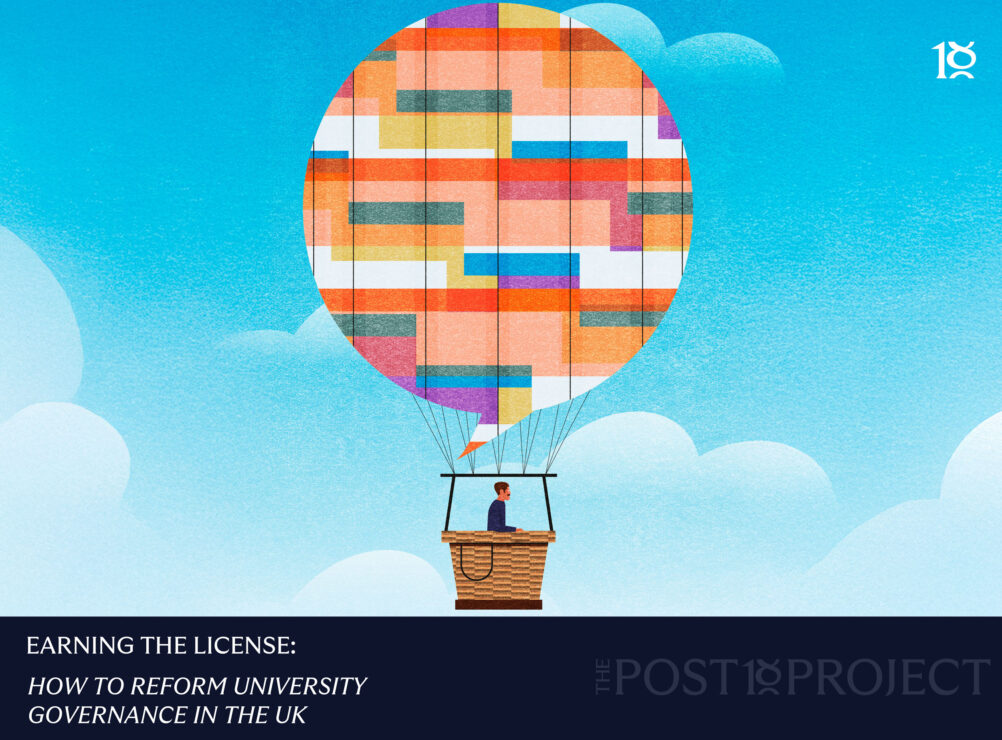Universities are keen to ensure diversity in admissions and progression. But even if institutions are making progress on those issues, there is still plenty of room for inequalities to creep back in at the point that students progress into the labour market.
New research from the Institute of Student Employers (ISE) and Debut suggests that many students don’t trust employers to treat them fairly. The research highlights the way in which gender, ethnicity and class shape students transitions and suggests that universities need to attend to the differences to support greater equality of outcomes.
The growth of graduate outcomes metrics has forced universities to attend to what happens when students leave and has shown up some of the inequalities that emerge when they do. The launch of this year’s graduate outcomes data highlighted gender and ethnic inequalities and garnered a range of disapproving headlines for the sector.
ISE and Debut surveyed over 2000 students and recent graduates to find out how they felt about the transition from higher education. Overall, we found that students were positive and optimistic, that they wanted to engage with employers and were looking forward to their move into work.
Unsurprisingly many were worried about finding work in the pandemic (58% said that they were not confident about finding a job), with more than half (57%) saying that they had changed their career plans since the start of the pandemic. But, some of the most interesting findings related to differences between demographic groups.
A problem of trust
Almost a third of students (29%) reported that they didn’t trust employers to treat them fairly during the recruitment process. A lack of trust was even more evident amongst non-white respondents and those respondents who had not attended a Russel Group institution.
These concerns about whether recruitment processes were fair and trustworthy were particularly notable when we asked respondents about the use of psychometrics.
Ethnicity, gender and class all seemed to drive student’s confidence about taking part in psychometric assessments. So 83% of white, male and privately educated respondents reported that they were comfortable with psychometric assessments in comparison to 64% of non-white, female and state educated respondents.
It is important to be clear that this finding is not a direct comment on the validity or fairness of the psychometric assessment itself. Indeed, some employers have introduced psychometrics precisely to increase fairness and remove subjectivity and bias from their processes. But there seems to be a problem with how this part of the assessment process is perceived by less advantaged candidates. This may influence their willingness to apply for these roles and their performance in the tests themselves.
Finding somewhere you fit
Various groups of students were clearly looking for reassurance from future employers about whether they would fit in and thrive within their organisations. The research shows that non-white and female respondents wanted somewhat different kinds of information to white males.
Non-white respondents and women were respectively 13 and 12 percentage points more likely to want to hear about the experience of employees from different backgrounds, genders, ethnicity and sexuality than white respondents and men. Some of these differences were cumulative with 97% of female, non-white respondents keen to hear from diverse employees, while only 71% of white males were interesting in hearing about this.
Non-white respondents were also more likely to want to hear about the social aspects of the organisation (88% vs 82% of their white counterparts). Again, this may be linked to seeking confirmation that this an organisation that they will fit into.
Finally, there was an important difference in which respondents were seeking information about organisation’s voluntary, charity and community work. Non-white respondents (88% vs 82% for white respondents) and women (90% vs 79% for men) are more likely to want to hear about corporate social responsibility.
Again, this may be being used as a proxy for an organisation which individuals feel they will fit into and which will align with their values.
How can universities respond?
These findings remind us that the transition from university into the workplace is a complex process.
Students are juggling their career aspirations, their trust in the employers that they are applying to, their confidence about different recruitment techniques and their impressions of whether they will fit into different organisational cultures.
These issues require advice and support and necessitate a strategic institutional careers service, strong relationships with employers and an approach to career learning within the wider curriculum.
The research also suggests that simply providing a one-size fits all approach is unlikely to deliver equality of outcomes.
Gender, ethnicity and class all interact with the process of graduate transition and the support provided by universities needs to acknowledge and respond to this.
This is about helping students to build a critical understanding of the labour market, ensuring that employers recognise the importance of sending diverse representatives to campus and paying careful attention to the inequalities in graduate outcomes.
Attending to equality and diversity in graduate outcomes is central to universities’ claim to be a positive force for social mobility and social justice. Given this it is important that these issues are brought center stage when we consider what student success really means.














Should one stop marking students’ work? Unless one stops this practice differentiation will still creep up. Should the university be a place where one ‘should prove yourself’? How is this possible unless one compares yourself with one’s peers? Why is ‘equality of graduate outcomes’ desirable?
If a course produces identical clones in terms of output how can one distinguish among them later?
There’s no way one can stop marking scripts because that’s where we know those on top